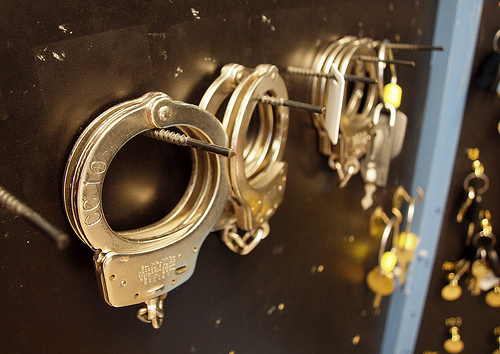Faulty RFID tags taken offline in prison

Radio Frequency Identification (RFID) tags used to track prisoners and operate staff panic buttons in a Canberra prison have been taken offline after the batteries in units were deemed faulty and put staff at risk by the state's attorney-general.

(Cuffs image by H. Michael Karshis, CC2.0)
ACT Attorney-General and Minister for Police and Emergency Services Simon Corbell said yesterday that RFID bracelets used throughout the Alexander Maconochie Centre had battery life issues throughout the facility.
When a bracelet battery drops too low, an alarm is activated. When there are too many alarms, the system becomes overloaded, requiring a restart of the entire tracking system. A process which, according to Corbell, can place prison staff in danger.
"Rebooting the system means all bracelets, including officer duress alarms, are then offline, which can place custodial officers in an unsafe position," said Corbell in a statement.
"For this reason a short-term solution for this problem is to disable and remove the prisoner units pending delivery of replacement parts to ensure that custodial duress alarms continue to work effectively," he added.
Corbell stressed, however, that RFID bracelets, supplied by NEC, are a secondary safety measure for tracking and securing inmates.
"There is a wide range of different security measures including patrols by corrections officers, a CCTV camera network for surveillance, microwave and acoustic detection, anti-climb devices on perimeter fence, security intercom system for staff and prisoners, two-way radio communication, master control room staffed 24 hours, fixed duress alarms, observation regimes, regular prisoner musters, electronically secured perimeter fence and electric pulse fencing," he said.
The bracelets, introduced in 2009, are currently being reviewed by NEC and new battery units are currently being acceptance tested in the US.
ZDNet Australia contacted NEC Australia for a time frame on when the replacement units will be ready for the prison, but no response had been received at the time of publication.
"ACT Corrective Services is working closely with NEC to resolve these ongoing problems with the RFID system in the shortest possible time frame," Corbell said.